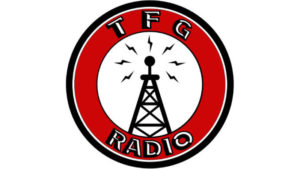40K Tourneys: The Judge is Always Right (at that moment)

Hey everyone! Adam, from TFG Radio, here once more to fill your mind with information to replace the important ones in your head!
I’ve been helping run tournaments since 3rd edition. I have previously run events out of people’s garages and in large conventions. It’s not just limited to Games Workshop games either. Currently, I am one of the head judges for the Las Vegas Open and help out with our local grand tournament, Hammer of Wrath GT. With the new ITC season upon us, there has been a lot of talk about the role of judges, or referees, in tournaments and different ways that they can help create a better competitive atmosphere. Unfortunately, the one thing people haven’t been talking about is perhaps the most important, the judge is always right (at that moment).
Now I know what you’re thinking, “but Adam, there have been plenty of times when we went back to look at a ruling that was made, and the judge was wrong.” To that I say, “Too bad, so sad” (Although I’m not really sad for you). So let’s take a look at a common scenario:
You and your opponent are playing your game. It has been going fairly well. It’s a close game, but there have been no major disagreements or issues. As you get to a critical point in the game, an issue comes up that you both cannot agree upon. For this example, let’s say it has to do with the main rules. You both decide to stop your game and call a judge over. They stop by your table, listen to the question and any other info they may need, then make their decision. Although you disagree, you continue with the game. After the game, or even during the game, you figure out that the ruling that was made was incorrect. So what are your options? The short answer is that you have none.
The moment you call a judge over, you give up all rights to being right. The judge becomes an arbitrator for the two players. As a result, both players agree to the decision of the arbitrator, whether they are right or wrong, and should not dispute the decision once it is made. Yes, you could argue the decision with the judge, but, if they do it right, they will make their decision and then be on there way to decide some other table’s fate.
There are ways you can help the judge come to the best decision. Have the rules handy and ready for them to reference, analog or digital. DO NOT USE OR RELY ON BATTLESCRIBE. Although helpful, it is not a reliable tool for rules referencing. Be sure to fully explain what the situation is. If you leave any important details out it could adversely affect the decision and end up not being in your favor. Most importantly, accept the decision with grace, whether it is for or against you. Come at a judge with attitude toward their decision, and you will easily gain a reputation among the small community of judges and possibly even removed from the tournament. Oh, and I guess hope I don’t show up when you ask for a judge 😉
~That’s all for this week, I hope you enjoyed the read. For the record, I have been right 100% of the time (at that moment) so don’t bother telling me how wrong I am. My wife already does that.
If you have any ideas, or suggestions for topics, please post it in the comments section.
And remember, Frontline Gaming sells gaming products at a discount, every day in their webcart!





